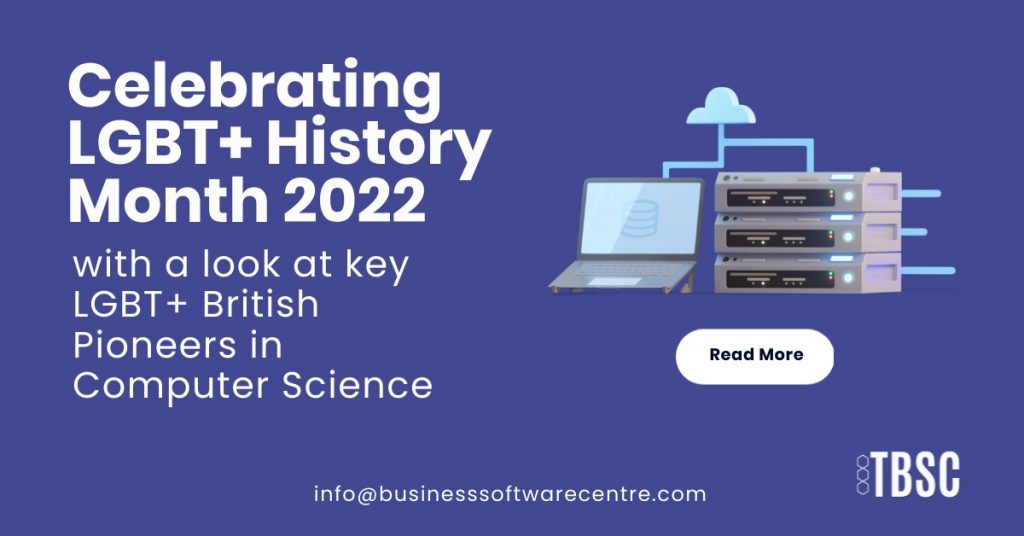
LGBT+ History Month 2022 (UK) is here with the theme “The Arc is Long.” This years’ theme was inspired by a Martin Luther King quote:
‘The arc of the moral universe is long, but it bends towards justice. ‘
This quote is powerful, showcasing that even though we aren’t 100% where we want to be as a society, the efforts are being made to create more social justice and fairness in the world.
At TBSC, we value diversity, inclusion, and want to create a workplace that encourages fairness. This includes providing education, training workshops, and mental health resources to our staff, as well as recorgnising calendar days or events. This means in the diversity and inclusion calendar, TBSC recognise LGBT+ History Month every February and LGBT+ Pride Month in June.
“In the workplace, a recent survey found that 25% of the LGBTQ+ community have experienced discrimination based on their orientation, and 31% reported feeling unhappy or depressed. These statistics alone highlight the importance of informative awareness events like LGBT History Month.” – (Source: https://motivationalspeakersagency.co.uk/news/how-to-celebrate-lgbt-history-month-2022-in-your-workplace)
LGBT+ British Pioneers in Computer Science
To help bring awareness to LGBT+ History Month, we wanted to share some notable figures in history that have contributed to the world of computer science. By recognising these figures, we hope to honour and celebrate their success in history.
Keep in mind, many contributors to computer science lived during times of social pressures or laws that required them to hide their true identities or orientation.
TW: Some descriptions might include content that might be seen as upsetting
Alan Turing (1912-1954): the ‘father’ of theoretical computing science and artificial intelligence
Turing was an English computer scientist, mathematician, and cryptanalyst who graduated from Cambridge and Princeton. During World War II, Turing worked as a cryptanalyst (deciphering coded messages) and played a large role in developing a technique to decipher encrypted German messages. With Turing’s innovation, this technique helped Allied forces defeat the Nazis.
Turing continued to work after the war, contributing to the Automatic Computing Engine (ACE) at the National Physical Library in London. In his later work at the University of Manchester, Turing investigated artificial computer intelligence, which included proposing an experiment to test AI, also known as the ‘Turing Test.’
Turing was an openly gay man in the 1950’s and was convicted of gross indecency after being arrested. This meant Turing could no longer work in ‘code cracking’ and lost his security clearances. Instead of going to prison, Turing was chemically castrated. A few years later, Turing committed suicide by ingesting cyanide and died at the age of 41.
Turing was granted a pardon in 2013 “and, after a long campaign, the same pardon was extended in 2016 to all men who had been convicted. Among those who led the fight for their names to be cleared was Liberal Democrat peer Lord Sharkey, who says the new £50 notes [with Turing’s appearance] will ‘serve as a reminder of the effects of bigotry and ignorance.’” – (Source: https://www.bbc.co.uk/news/uk-england-manchester-48994393)
Sophie Wilson (1957): British computer scientist
Sophie Wilson has been named one of The 15 Most Important Women in Tech History. Wilson’s early life took place in Leeds, where she was encouraged by her parents, who were both teachers (father in english and mother in physics) to focus on her education. Wilson went to study computer science and the Mathematical Tripos at the University of Cambridge.
During her time in University, Wilson designed a microcomputer with a MOS Technology 6502 microprocessor. Our research shows this was used to electronically feed cows.
Wilson’s career grew, contributing to the design of the Acorn System 1 (an early 8-bit computer released in 1979), and later the BBC Micro, which was a huge success in the UK market. Wilson is best known for her development of the Acorn RISC Machine (ARM) processor, which still used today in 21st century smartphones.
Wilson is a transgender woman. Wilson underwent gender reassignment surgery and transitioned from male to female in 1994.
Christopher Strachey (1916–1975): British computer scientist
Christopher Strachey was born in Hampstead, England, and his father worked alongside Alan Turing as a cryptographer at Bletchly Park during World War II. Strachey studied mathematics and physics at Kings College, Cambridge, where he suffered a nervous breakdown during his third year (which his sister attributed to his struggles to come to terms with his homosexuality).
After an early career as a research physicist and teacher, Strachey developed a program in 1951 that allowed the Pilot Ace computer at the National Physical Laboratory (NPL) and later the Manchester Mark 1 to play a game of draughts (checkers). He also wrote one of the first computer music programs, which played “Baa Baa Black Sheep” on the Ferranti Mark 1. Strachey is also remembered as one of the developers of Combined Programming Language (CPL), an early precursor to the influential C programming language.
(Source: https://newrelic.com/blog/nerd-life/10-lgbt-computer-science-pioneers)
Peter Landin (1930–2009): British computer scientist
Born in Sheffield, England, Peter Landin studied mathematics at Clare College, Cambridge University, and for a time worked as Christopher Strachey’s assistant. His insight that computer programs could be based on mathematical logic led to the development of programming languages that could be universally understood by different machines.
He eventually became emeritus professor of theoretical computation at London’s Queen Mary College. Landin was married but was openly bisexual. In the early 1970s he became involved with the Gay Liberation Front (GLF), and in the later part of his life became more and more devoted to gay rights activism.
(Source: https://newrelic.com/blog/nerd-life/10-lgbt-computer-science-pioneers)
For more information pm LGBT+ History, to donate, or support, please check out these organisations:
The Proud Trust:
Opening Doors:
https://www.openingdoorslondon.org.uk/
Mermaids:
Stonewall: